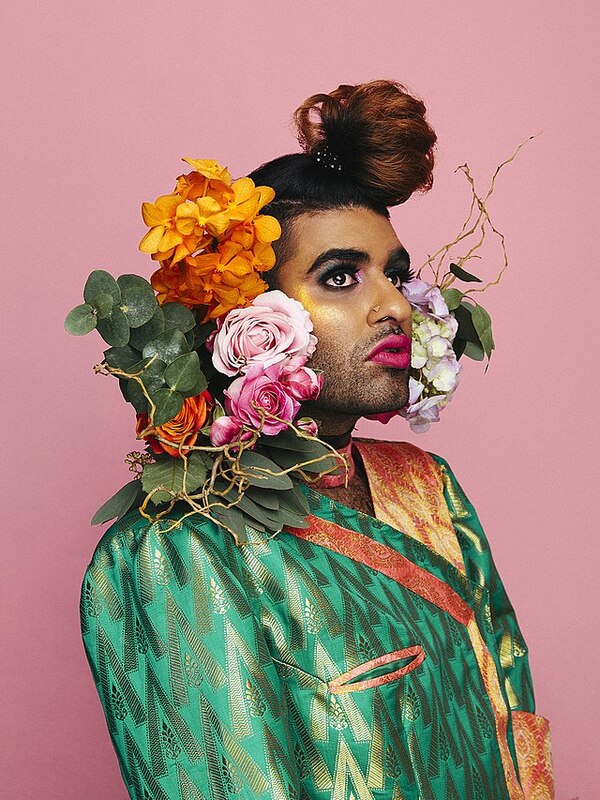Pride has historically been both a time of celebration and protest.
Since 1972, the UK has been holding Pride marches and events across the country celebrating the LGBT+ community, reflecting on the progress made and what has changed, but also how far there still is to go.
In their Hate Crime Report 2021, Galop highlighted that 3 in 5 LGBT+ people experienced anti-LGBT+ hate crime and only 1 in 5 were able to access any support.
While domestic abuse disproportionately affects women, it exists across all parts of society and in every kind of intimate relationship. Responses to both survivors and perpetrators of domestic abuse in the LGBT+ community have been piecemeal and varied but work is continuing to be done. Respect’s work through the Drive Partnership’s National Systems Change programme is one of the ways we seek to address this.
For Pride this year, we have been taking time together as colleagues to share and celebrate our individual LGBT+ icons and what they mean to us. We’ll be sharing some of these icons throughout the month on this page.
Our Icons
For Pride this year, our staff have been sharing and celebrating our individual LGBT+ icons and what they mean to us. We’ll share a few here throughout the month...
George Michael
Sarah, Finance Officer at Respect shared why George Michael is her LGBT+ icon:
''His story reminds me how far we have come. Having to deny his sexuality and put on the facade of being a very straight man was one of the reasons I decided to write my dissertation on popular music and sexuality. I was very pleased to see that after he came out he became an active LGBT+ rights campaigner and HIV/AIDS charity fundraiser and released an excellent song.''
George Michael was in the music world for over 30 years, with highs and lows, working with others and flying solo, leaving a lasting impact on many.
It was in 1998 that Michael announced that he was gay after an incident with the police. After this announcement he continued to work on his music and tour but also, as Sarah said, became an LGBT+ campaigner and HIV/AIDS charity fundraiser.
It wasn’t until after his death that his full generosity and kindness was revealed. He often donated his time and much of his wealth anonymously. This included volunteering at homeless shelters, paying for a woman’s fertility treatments, and tipping a waitress enough to help her pay for her school fees. He donated millions to charities, including Childline, as he wanted to support vulnerable children. All whilst remaining hidden from the headlines.
For more information on George
Alok Vaid-Menon
Millie, Helplines Advisor at Respect, shared why Alok is their LGBT+ icon…
‘‘Alok Vaid-Menon (they/them) is an extraordinary poet, comedian, social and political activist, fashionista, public speaker, author and actor. They are an inspiration for me due to their creative works and activism.
Alok continues to centre love, kindness and resistance in their art, and I often seek out the way they discuss and explore complex political and social issues when I'm in need of comfort, direction, or clarity. Today, Alok advocates for bodily diversity, freedom of gender expression, self-determinism and explicitly opposes racism, sexism, homophobia and transphobia.’'
Ellen Pence
Jo Todd CBE, CEO at Respect shared why Ellen Pence is her LGBT+ Icon:
‘‘I want to remember Ellen Pence, an activist from the US who many of you will know, who was one of the founders of the Duluth model. I met her a few times, and she was such a joy to be around and a great storyteller! Half activist, half stand-up comedian
Our movement was built on the shoulders of lesbians and bi women, many of whom have been forgotten, but thankfully Ellen's memory and legacy live on.
It's so important to tell our stories and celebrate the people who helped build what we now have.’’
During the 1960s, Ellen was an activist in the housing, anti-war, civil rights and feminist movements. In 1975, she became active in the Battered Women’s Movement, which became the primary focus of her work. After a time of advocating for funding for women’s shelters, Ellen moved from Minneapolis to Duluth, MN, where in 1980, she and a small group of activists organised the Domestic Abuse Intervention Project, commonly referred to as the “Duluth Model.”
This model, which has been adapted for use throughout the world, employs an interagency approach to shift responsibility for confronting domestic violence from the victims of the violence to the community, based on the idea that women (and their children) have as much right to be safe at home as all people have to be safe on the street.
Pride doesn’t end in June because our sector is built on it, and so we continue to carry the torch, which icons like, Ellen Pence have left us.
LGBT+ Support Services
GALOP
Supports LGBT+ people who have experienced abuse and violence:
National Helpline for LGBT+ Victims and Survivors of Abuse and Violence: 0800 999 5428 Email: [email protected]
Switchboard
The national LGBTQIA+ support line.
Support line: 0800 011 9100
Email: [email protected]
LGBT+ Foundation
A national charity supporting LGBTQ+ health and wellbeing
Helpline: 0345 330 3030.







